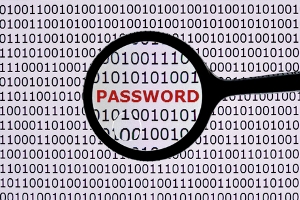How to Protect Your Information Online
 Every week I receive emails from people asking how they can protect their privacy online. It seems like there have been more and more data security breaches, and therefore awareness about the potential to have our information exposed is growing. In fact half of us worry about the amount of personal information about us that is available online compared to only 33% who were concerned about this in 2009.
Every week I receive emails from people asking how they can protect their privacy online. It seems like there have been more and more data security breaches, and therefore awareness about the potential to have our information exposed is growing. In fact half of us worry about the amount of personal information about us that is available online compared to only 33% who were concerned about this in 2009.
A recent Pew survey found that 86% of Internet users have taken steps online to remove or mask their digital footprints—ranging from clearing cookies to encrypting their email. And while most of us would like to be anonymous online, most of know that this is not always possible. Some other startling facts from the study:
21% of Internet users have had an email or social networking account hijacked, and 11% have had vital information like their Social Security number, bank account data or credit cards stolen
13% of Internet users have experienced trouble in a relationship between them and a family member or friend because of something the user posted online
6% have had their reputation damaged because of something that happened online and 4% have been led into physical danger because of something that happened online
Yet even though we want to keep our information private, most of us still knowingly post information online. The study found that half of us knew that our birth date was available online, and a whopping 30% knew that their home address was available online. And what else was revealing was that 26% of us didn’t’ feel that it was that important if people knew our location when we were online.
So while we may be concerned with privacy, there’s also a discrepancy in terms of what we have posted online or what we consider private or personal. Of course, this is a personal choice, but we should all be aware of things we can do to protect our information online, especially since it is not always in our control.
Be careful what you share online: Do what you can to control what information you reveal about yourself online. You should think about the Internet as akin to writing in permanent pen…once it’s there, it’s there forever.
Be cautious about where you give your information to: In today’s world a lot of information about us that is available online is not something that we posted ourselves. So think twice when giving your information, even if that’s in paper form since most employers, medical offices, etc, keep your information in electronic format and also what information you actually give out.
Lock down your privacy settings: Make sure you know how to use the privacy settings on social media sites, email, and other online applications and don’t connect with anyone you don’t know in the offline world.
Be careful what you download: Know what you are downloading, whether that be a photo from a friend or that fun new app for your smartphone. Many apps access information on your mobile device that you may not know about so make sure you check the permission it is accessing.
Keep your devices clean: Use comprehensive security on all your devices (not just your PCs) like McAfee LiveSafe™ service and keep your devices’ operating systems and browsers up-to-date to protect your information online.
Use tools to help keep protect your privacy: You can use things like browsing in “incognito” mode or clearing your cookies. You should also make sure that you don’t have your browser set to “remember me” or your apps set to automatically log you in. That way if anyone else uses your computer or gets a hold of your mobile device, they can’t access that information.
While we can’t control everything about us that is online, we can be proactive about what information we post online about ourselves and what information we give out.
Robert Siciliano is an Online Security Expert to McAfee. He is the author of 99 Things You Wish You Knew Before Your Mobile was Hacked! Disclosures.


























